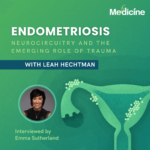As yet there is no drug or intervention that can cure dementia but research has shown us that there are many clues to its development that help us understand how we can prevent and delay progression.
The human brain is a spectacular organism with new research into neuroplasticity suggesting that thinking, learning, and acting actually change both the brain’s physical structure and functional organisation. This is truly an exciting period in science. What we now know is that the human brain has the potential to change itself from its former conditioning. I am not saying that patients with dementia can be cured necessarily (unfortunately) but I am saying that with the new understanding, we need to rethink our previous perceptions and limitations.
The human brain comprises of a large amount of fatty tissue, which explains why essential fatty acids (especially omega 3 fatty acids – DHA and phospholipids); and fat-soluble vitamins such as Vitamin A, D and E are strongly correlated with positive health effects on mental performance and cognition. Due to the fatty tissue, the brain is susceptible to oxidation. As such, the above mentioned fat soluble vitamins as well as Zinc and Selenium are all potent antioxidants specific at preventing dementia.
Bacopa monniera (Brahmi) has shown significant positive attributes in improving mental capacity and protecting the neurological system. It is a potent brain antioxidant that exhibits neuroprotective activity and protects the lipids (fats) in the brain. Gingko biloba (Gingko) has an exceptional reputation for optimizing brain function. It has been shown to protect the brain and improve circulation, and regulate chemical release in the brain. Most importantly there are hundreds of studies supporting its benefit to improve cognition and memory.
Anything that exercises the neurons in the brain will help the neuroplasticity theory. As such, reading, writing, playing instruments and physical activities that promote left and right brain communication will support optimal brain function. Learning languages via the continual conversion and translation is said to be exceptionally effective as well.


